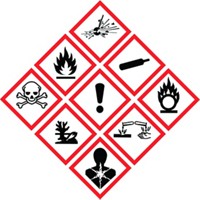Advertisement
Grab your lab coat. Let's get started
Welcome!
Welcome!
Create an account below to get 6 C&EN articles per month, receive newsletters and more - all free.
It seems this is your first time logging in online. Please enter the following information to continue.
As an ACS member you automatically get access to this site. All we need is few more details to create your reading experience.
Not you? Sign in with a different account.
Not you? Sign in with a different account.
ERROR 1
ERROR 1
ERROR 2
ERROR 2
ERROR 2
ERROR 2
ERROR 2
Password and Confirm password must match.
If you have an ACS member number, please enter it here so we can link this account to your membership. (optional)
ERROR 2
ACS values your privacy. By submitting your information, you are gaining access to C&EN and subscribing to our weekly newsletter. We use the information you provide to make your reading experience better, and we will never sell your data to third party members.
Environment
An Explosive Tragedy
March 25, 2013
| A version of this story appeared in
Volume 91, Issue 12
As a chemist with more than 50 years’ involvement with display fireworks, I find it appalling that in the Donaldson Enterprises Inc. incident the safest and most obvious means of disposal was apparently never considered (C&EN, Jan. 28, page 26). Simply firing the materials normally and allowing them to function as designed in a safe place would have been a far better course of action.
Display fireworks are fundamentally different from munitions and other classes of explosives in too many ways to list here. But following are a few of the more salient differences applicable to disposal: They are often complex in construction, not designed with disassembly in mind, and widely varied in the number of different pyrotechnic compositions that might be present in a single device. They are not reliably destroyed by water or other liquids, are perilous to cut into, and are dangerous to mass-incinerate whether wet or dry. Disposal involving such methods requires great caution and a full knowledge of the product and should be reserved only for situations where conventional firing is impossible.
It appears that the materials in this case were not damaged or defective, but were merely mislabeled. Had they been properly marked and classified for professional use, they would have been perfectly suitable for that purpose. Therefore, there was no practical necessity for disposal by unusual means.
This raises the question of whether the root cause of this tragedy was, in fact, bureaucratic: Might arbitrary yet rigid protocols have precluded a far safer and simpler disposal? It would not be the first time that safety has been sacrificed upon its own altar by misguided policy.
John Bergman
Milton, Wis.




Join the conversation
Contact the reporter
Submit a Letter to the Editor for publication
Engage with us on Twitter